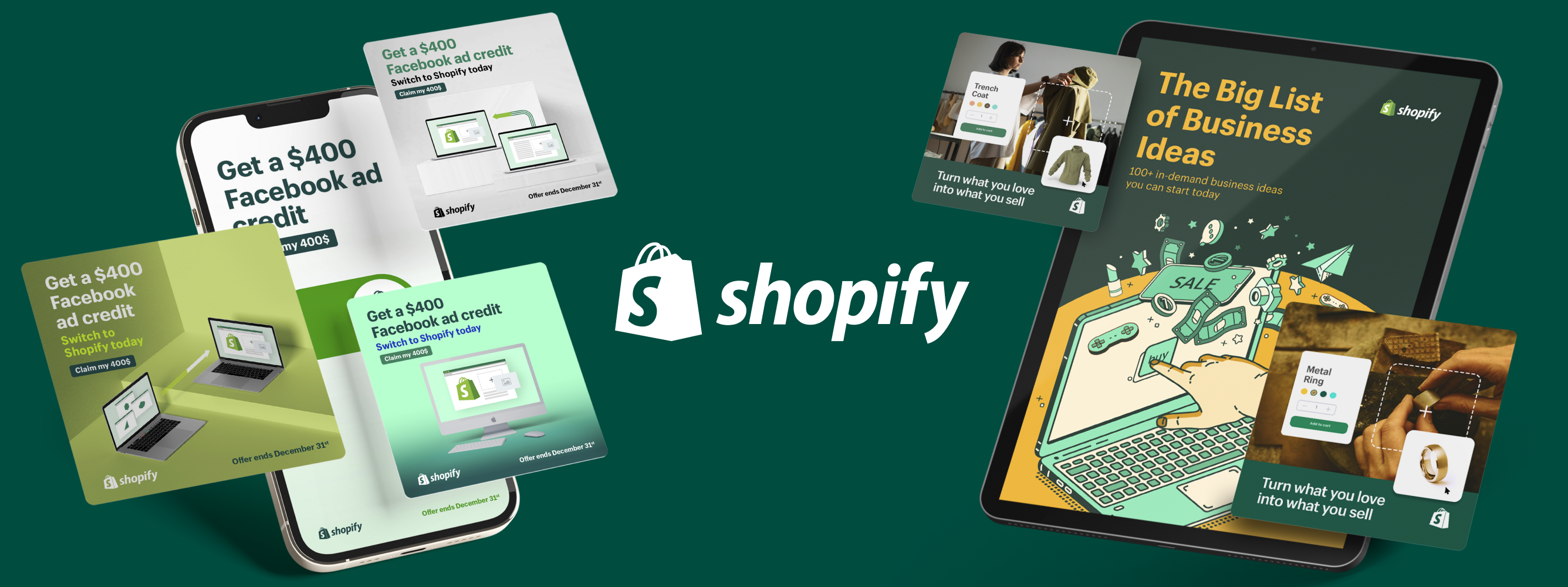How to Create Effective Marketing Presentations

A marketing presentation is a key tool used to convey information and concepts relevant to your industry. The strength of your presentation is vital: it is the carrier of your grand idea and hours and hours of research. Whether the pitch is big or small, simple or complicated, internal or external, a large part of the success or failure is down to how well your presentation is understood and received.
Knowing how to create an on-brand, effective and persuasive marketing presentation is a valuable skill for any marketer. With our expert tips, best practices and presentation design capabilities, you can guarantee that your marketing presentations will hit the bullseye every time.
Marketing Presentation Templates
Making use of a presentation template still requires implementing presentation design best practices. Whether you're working in PowerPoint, Keynote, Pitch, Canva, or any other presentation design software, the best practice tips in the video below will help ensure your presentation looks slick and professional.
While these templates are convenient, it’s worth noting that the presentation build may require some compromise here and there. For full freedom of your marketing presentation design, you are better off creating it yourself or tapping into design service experts (like Superside!).
How to Create a Marketing Presentation Strategy
There are four core tenets you need to follow to ensure that your presentation is clear and effective.
1. Make your audience care
There’s a good chance that everyone in your audience has seen hundreds of marketing presentations before. Make them remember yours by getting them to invest. A well-designed, engaging presentation with interesting content will go a long way, but get audience buy-in as quickly as possible. One of the easiest ways of doing this begins before the first slide is even shown: make sure that everyone in the room is relaxed and comfortable.
Create a collective feeling of relaxation within your presentation group by confidently introducing yourself, your pitch and what your audience can expect throughout. Show confidence or, if you’re nervous presenting (like me) then be as clear and concise as possible. If the presentation is online, explain the mic on/off policy and give an estimated start and finish time.
2. Display excellent storytelling
A good story engages the brain and draws attention. Ensure that when your presentation moves from Point A to B to C, it does so with harmony and flow. What storytelling will look like may vary, but weaving a golden thread through your content will make it captivating and absorbing. If you really want to impress, take your storytelling to the next level with motion graphics.
3. Create value early
Don’t subject your audience to an unnecessarily long buildup. You’re presenting to them because you have something of value to share; let them know what this is early on. It will enable them to envision and align with your thinking from the beginning, ensuring nobody starts the presentation left behind.
4. Showcase beautiful design
Make your presentation pop. Display data in a visually pleasing way and use complementary colors, presentation-friendly fonts and smooth transitions. If your presentation isn’t gripping when you look through it, expect your audience to feel the same way. But be careful not to overdo your design: too much can make your presentation feel overwhelming.
Marketing Presentation Tips and Best Practices
How to present your marketing ideas is dependent on your industry and audience, but these 6 tips are beneficial across the board.
1. Build a strong structure
This ties into the storytelling strategy to a degree, but the focus here is less on making it exciting and more on giving your content the appropriate hierarchy. Start with an impactful opener, get into the main content quickly and conclude with a strong call to action, and clear next steps or requirements.
This is especially important in industries like tech or finance, where decisions are much more data-driven than based on opinion or emotion. Identify your main points or arguments and give those the most weight and attention in your presentation.
2. Design with intention (not just for design’s sake)
Other than your underlying pitch or argument, design is the most crucial aspect of your marketing presentation. Nobody wants to endure slide after slide of plain text; it’s boring and unprofessional.
How Superside used color to enhance design for Salt.
Design and colors aren’t just there to make things look good. They enhance and reinforce your content. This could include charts, images, or even a well-designed copy slide. By making your presentation easy on the eye, you make it a pleasure to take in and give your key points the best chance of making an impression.
Although not out-and-out design, slide transitions are another nice way to bring in some subtle visual value. You can use them to add a tempo to your pitch and, as a result, land a strong statement with a punch.
3. Write easy-to-read, easy-to-understand copy
This does not mean that you should dumb down your content or patronize your audience, but rather that your copy shouldn’t be overloaded with jargon or waffle.
Explain acronyms or adjectives and avoid buzzwords. In the end, if your audience has questions, they’ll ask you at the end of the presentation anyway. Keep your slide copy short and punchy, and elaborate in your speaker’s notes.
4. Consider using illustrations
Illustrations are a brilliant way to break down information-heavy content. They emphasize details and simplify the complex. Illustrations are not bound by the constraints of photography, and they can incorporate any color, any font, and virtually any style.
Learning how to present your marketing ideasusing illustrations is one of the fastest methods of improving the overall quality of your pitch.
Illustration is kinda our bread and butter here at Superside.
5. Nail the presentation delivery
In much the same way that the humor of a stand-up set is at the mercy of the performance of the comedian, the success of your marketing presentation is dependent on your delivery. Make use of speaker’s notes, and really emphasize those points that you want your audience to remember. Keep your pacing steady and comfortable: use the delivery of the presentation as your platform to make the content in your slides come to life.
6. Practice!
This should be obvious, but it is the eternal downfall of the overconfident speaker. From high school presentations to keynote speeches, we’ve all seen an underprepared presentation before, and it’s not pretty. Do not let your first presentation run-through be your actual presentation.
Practicing allows you to become familiar with your presentation structure, identify where you might need to spend some time contextualizing things and become comfortable with your speaker’s notes. Also, explaining your pitch out loud will often lead you to see your argument or speech in an entirely new light, allowing you to add and adjust your argument to what suits the situation best.
How to Make Your Marketing Presentations Work for You
By following these tips, you can create effective marketing presentation designs that are both visually outstanding and effective at catching and keeping your audience’s attention.
If you need any presentation design guidance, our team of experts at Superside is always happy to help. Get in touch with us today to learn more about our services.
Sofie is an SEO and content specialist. From being a journalist at your daily news television broadcast, to producing films and writing travel blogs; she has ended up at the more technical side of content and has a nose for sniffing out the creative pieces that will make your competitors look like digital noobs.
When not busy operationalising Content, she is happily cooking up a storm, hiking through the mountains or searching for the best flight tickets to her next travel destination.
You may also like these

The creative power of data: How to go beyond numbers
Over the last ten years, access to marketing data has gone from a slow drip to a virtual tsunami of performance data, social media metrics and marketing analytics. Creative teams are swimming in data—unfortunately, without lifeguards.We've talked to over 200 creative leaders who, like you, wish data came with a mute button. In our Overcommitted Report, 76% of leaders said they feel burned out, and 78% say the demands on their teams are exceeding their capacity.The solution? Using data to improve workflows and inspire your team.The problem? Knowing how to cut through the noise (and the data points) to focus on what matters.Simply put, it's not how much data you have but what you do with it. We were lucky to have two creative leaders, Malik Sulieman, Creative Director at Cash App, and Ryan Hammill, Creative Director at ServiceNow, join us on our Overcommitted Virtual Summit to share how they pair data and creative insights to reduce burnout and help their teams create fantastic work.
Enterprise Graphic Design RFP Best Practices (Checklist Included)
For enterprise and mid-market businesses looking to enhance their creative capabilities and scale overall capacity, issuing graphic design RFPs are an essential part of the formalized procurement process for agencies, contractors and other external partners.RFPs create a structured, transparent framework for assessing and comparing service proposals from different outsourced creative partners.As an internal stakeholder, your opening role is to lay out your creative needs and timelines, communicating efficiently to prospective partners exactly what you’re looking for in a business relationship.In turn, these prospective creative service partners are asked to put their best feet forward demonstrating why their capabilities, capacity, skills, tools and scale are the best fit.On average, respondents spend around 30 hours of writing time developing their proposals. While it varies, you can expect to put just as much time into writing your RFP, evaluating the responses, communicating with procurement and selecting the winner of your work and budget.
8 Creative Agency RFP Templates for Enterprise Teams
Creative agency requests for proposals (RFPs) are conversation starters—incredibly important icebreakers.Mid-market and enterprise teams issuing the requests are introducing their brands, key business challenges and expectations of their creative service partners. Conversely, prospective partners use this information to pull together their responses.It’s a high-stakes, high-effort process for everyone. Communication breakdowns mean neither side gets what they need. More than ⅓ of brands get incomplete or inaccurate responses to their creative service RFPs.








